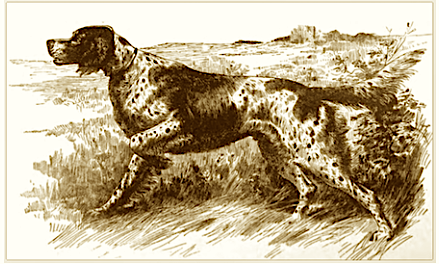Online Course
The Biology of Dogs
|
Instructor
Carol Beuchat PhD Scientific Director, ICB |
|
|
TOPICS
EVOLUTION
What are the latest theories about the origin of the dog? Where does the Dingo fit in? When and where were dogs domesticated? What are landraces and village dogs? What can DNA tell us about the history of dogs? ANATOMY & PHYSIOLOGY
The amazing sensory systems of dogs What is unique about the physiology of dogs? What are the differences in physiology between breeds? How does anatomy affect physiology? Why are sled dogs such amazing athletes? BEHAVIOR
How are dogs different from other mammals? How much of behavior is genetics vs environment? How does instinct affect behavior? How smart are dogs? What are we learning about the mind of the dog? GENETICS
How closely related are dogs and wolves? How did so many different breeds evolve? What are we learning about dogs through DNA analysis? How has selective breeding affected the genetics of dog breeds? ROLES
What are the roles dogs have played in the history of civilization? What do dogs do for us? What will dogs be doing in the future? |
COURSE INFO
SUMMARY
There has been an explosion of research about dogs, with new information being published almost daily about their history, behavior, genetics, and the amazing things they can do for us. This is a whirlwind tour through the most up-to-date information available about the biology of dogs. We will look in on the debate raging among researchers about the origin of the dog (Middle East? Asia? Both? Someplace else? ). We'll review how the anatomy of the dog has been changed by the process of domestication and selective breeding, and we'll learn about some of the unique anatomical features of various breeds. We will explore the interactions of genetics and environment in shaping the behavior of dogs. We will see how dogs and humans have evolved together and how this partnership has affected genetics. We'll learn why dogs have become the model animal for biological and biomedical research, and how they might come to play a key role in diagnosis and treatment of human diseases. MATERIALS & LOGISTICS
You will need a Facebook account and access to the internet. We will communicate for questions and discussions through a private Facebook group. You don't need to "attend" at a particular time; all course materials will be available 24/7 through the course website. We can accept students from anywhere in the world. TIME COMMITMENT AND SCHEDULE
This is a 10 week course. Generally there will be about 3 hours of reading and exercises per week. Some people will do more, some will do less. Because the materials stay online, you can work at your own pace. You can repeat the course as many times as you want (no additional charge). REFUNDS
There are no refunds after the first week of the course. |



